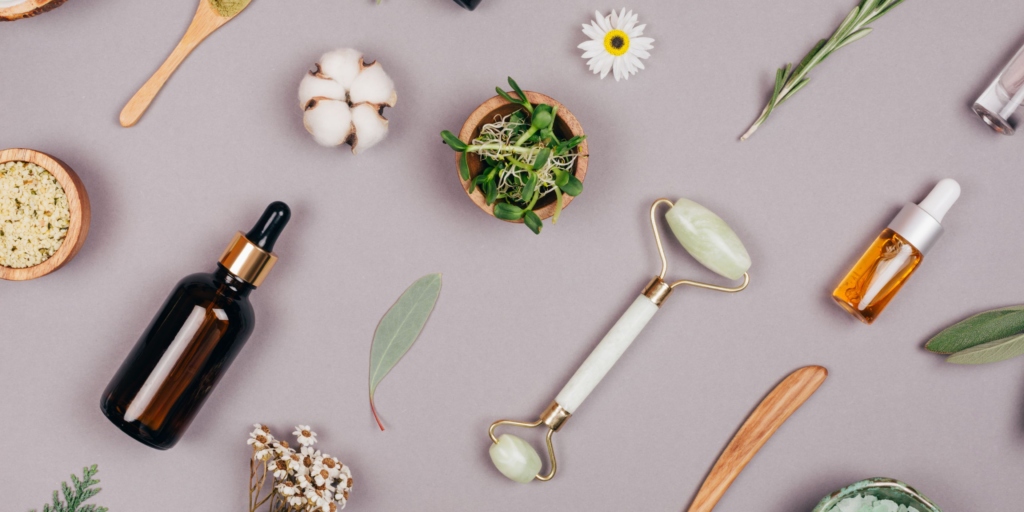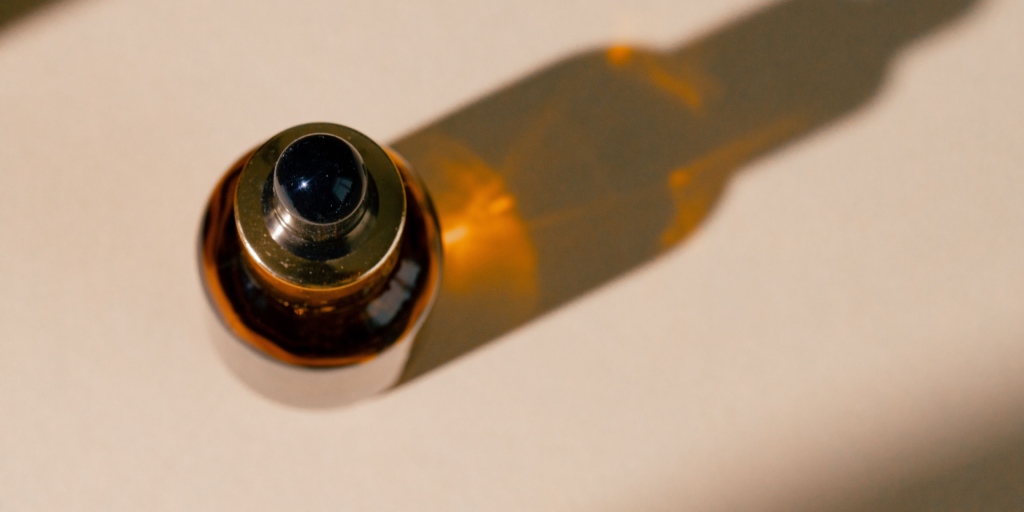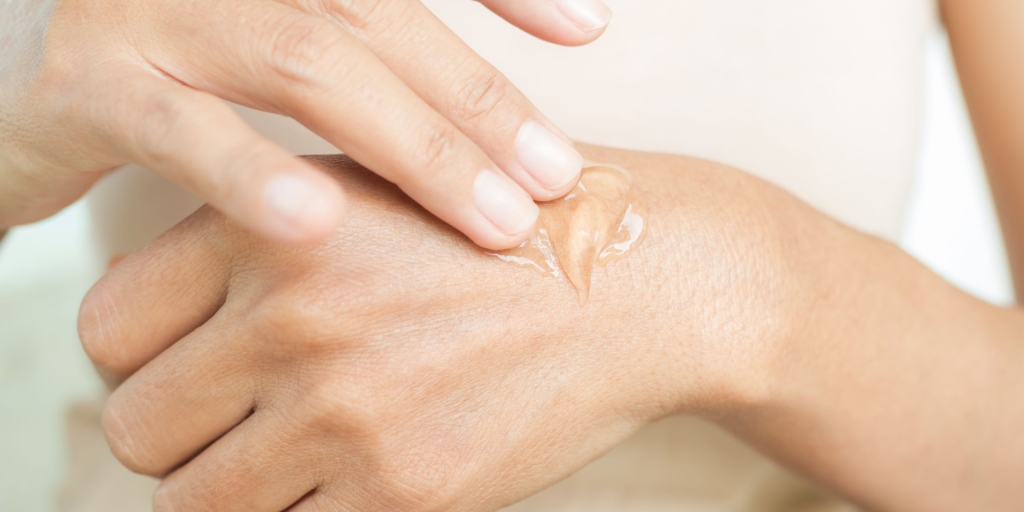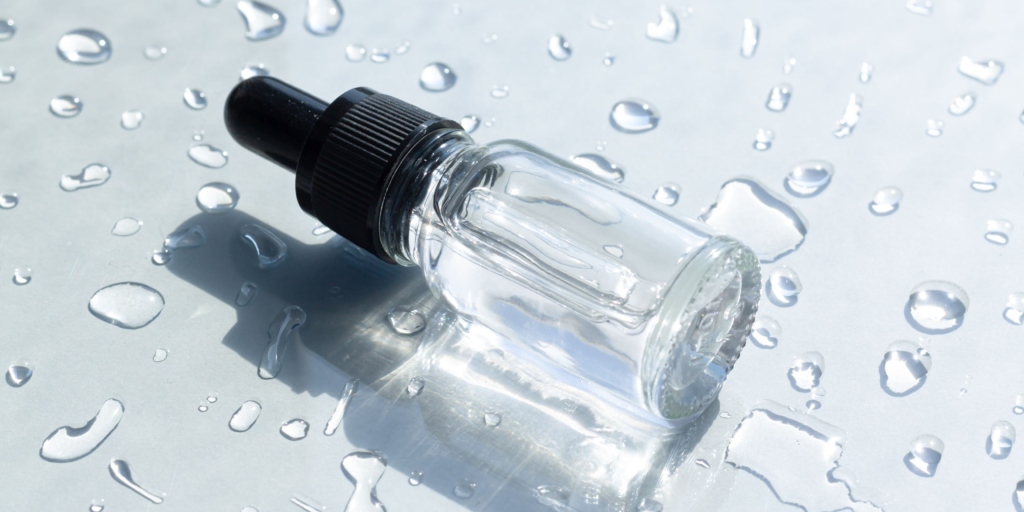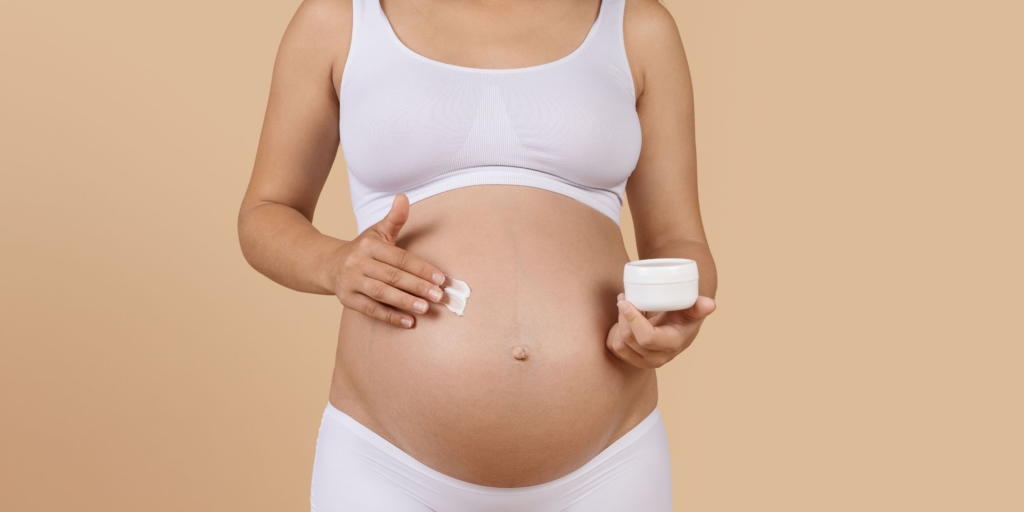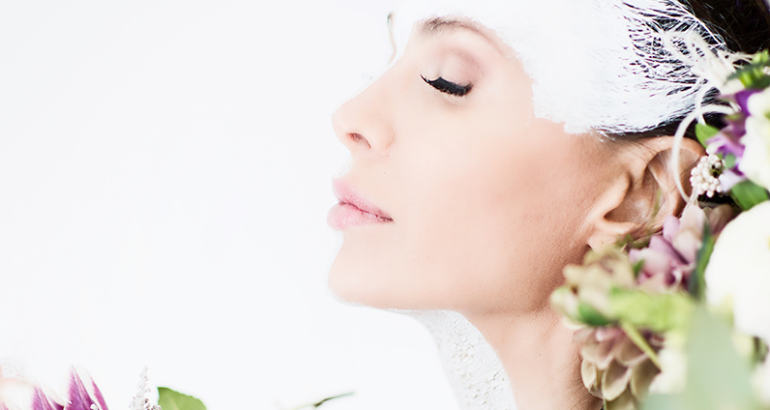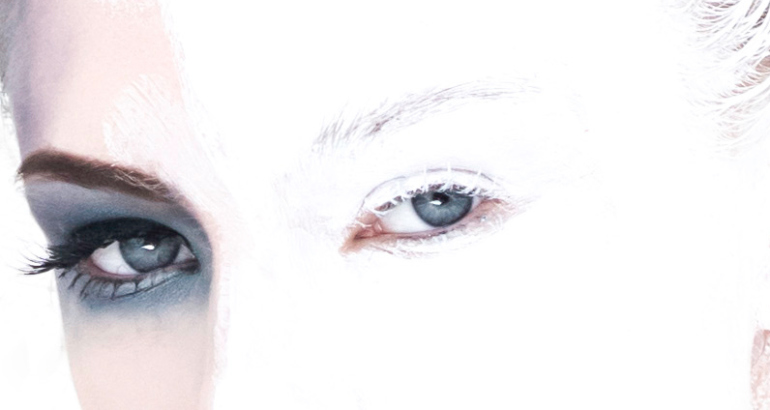by Skincare Specialist, Bianca Erispe
Pregnancy is a beautiful journey filled with excitement, anticipation, and a whole lot of changes – including changes to your skin. As an expectant mother, taking care of your skin becomes even more important, but it’s essential to be mindful of the products you use. With so much information out there, navigating pregnancy-safe skincare can feel overwhelming.
That’s why we’ve curated this comprehensive guide to help you understand which skincare ingredients are safe to use during pregnancy and which ones to steer clear of. From glowing skin to a healthy pregnancy, let’s explore the world of pregnancy-safe skincare.
How Skincare Ingredients Can Affect Your Pregnancy
During pregnancy, your body undergoes a myriad of changes, including hormonal fluctuations that can affect your skin in various ways. From acne flare-ups to increased sensitivity, it’s essential to tailor your skincare routine to accommodate these changes. But with so many products on the market, how do you know which ones are safe to use? Understanding pregnancy-safe skincare begins with knowing which ingredients to embrace and which to avoid. By arming yourself with this knowledge, you can make informed decisions about the products you use and ensure the health and well-being of both you and your baby.
While the placental barrier provides some protection to the fetus, it’s not entirely impermeable. Certain molecules can cross this barrier, highlighting the need to be selective about skincare products during pregnancy. Opting for products with safe and well-researched ingredients becomes critical to minimize any potential risks.
Despite the growing body of research on skincare ingredients, there remains a lack of comprehensive studies specifically focused on pregnant individuals. This shows the importance of exercising caution and erring on the side of safety when selecting skincare products. Staying informed and proactive in skincare choices is key to ensuring a healthy pregnancy journey.
Let’s take a look at our favourite pregnancy-safe skincare ingredients.
Pregnancy-Safe Skincare Ingredients
When it comes to skincare during pregnancy, certain ingredients have been deemed safe for use. Exploring these ingredients can provide expectant mothers with reliable options for their skincare routines, promoting peace of mind and positive health outcomes.
This section will explore a range of skincare ingredients considered safe for pregnancy, offering expectant mothers dependable options for their skincare regimens.
Vitamin E
Vitamin E is renowned for its antioxidant properties, which play a crucial role in protecting the skin from oxidative stress. This is particularly beneficial during pregnancy when hormonal changes may increase skin sensitivity. Additionally, Vitamin E supports the skin’s healing process, aiding in the repair of any damage incurred during pregnancy, such as stretch marks or scars. When it comes to skincare during pregnancy, the safety of topical Vitamin E application is important. Fortunately, it is generally considered safe for use, offering a range of benefits such as improving skin elasticity and moisture levels.
Vitamin C
Vitamin C is a powerhouse ingredient in skincare, known for its ability to brighten the complexion and boost collagen production. It’s safe for use during pregnancy and can help address common skin concerns like hyperpigmentation and dullness. When choosing a Vitamin C product during pregnancy, opt for stable formulations to ensure effectiveness without compromising safety.
Niacinamide
Niacinamide, also known as Vitamin B3, is a versatile ingredient that supports various aspects of skin health. It helps strengthen the skin barrier, control sebum production, and reduce inflammation—all without posing any risks during pregnancy. Incorporating niacinamide into daily skincare routines can help address a range of concerns, including minimizing the appearance of pores and reducing redness.
Azelaic Acid
Azelaic acid is another pregnancy-safe skincare ingredient known for its effectiveness in treating acne and hyperpigmentation. With a safety profile that makes it suitable for use during pregnancy, azelaic acid offers a gentle yet effective solution for managing common skin concerns. Its anti-inflammatory properties also make it beneficial for conditions like rosacea and melasma, which are often exacerbated during pregnancy.
Glycolic Acid
Glycolic acid, a type of alpha hydroxy acid (AHA), is considered safe for exfoliation during pregnancy. It promotes cell turnover, resulting in a brighter complexion and improved skin texture. However, it’s essential to use glycolic acid in concentrations of less than 10% during pregnancy and to patch test before regular use, as the skin may be more sensitive during this time.
Bakuchiol
Bakuchiol is gaining popularity as a safe alternative to retinoids during pregnancy. It offers similar anti-aging benefits without the potential risks associated with retinol. Bakuchiol has been shown to improve skin elasticity and texture, making it an excellent addition to pregnancy-safe skincare routines.
Hyaluronic Acid
Hyaluronic acid is beloved for its ability to attract and retain moisture, making it an excellent choice for maintaining hydrated, plump skin during pregnancy. As hormonal changes can lead to fluctuations in skin hydration levels, incorporating hyaluronic acid into skincare routines can help ensure optimal moisture balance.
Centella Asiatica (CICA)
Centella Asiatica, also known as CICA, is a soothing ingredient that can help reduce redness and irritation in sensitive skin. It’s particularly beneficial during pregnancy when hormonal changes can increase skin sensitivity. Additionally, research supports Centella Asiatica’s efficacy in improving skin hydration and barrier function, essential for maintaining healthy skin during pregnancy.
Mineral Sunscreens
Sun protection during pregnancy is important to safeguard both maternal and fetal health. Mineral sunscreens provide a safe and effective barrier against harmful UV rays without the risk of chemical exposure. This is particularly crucial during pregnancy when hormonal changes may heighten skin sensitivity. By emphasizing the importance of sun protection, expectant mothers can prioritize their skin health and minimize the risk of sun damage. Zinc oxide emerges as a preferred ingredient in sunscreens for pregnant individuals due to its safety profile and broad-spectrum protection against both UVA and UVB radiation. Its natural properties make it an excellent choice for sensitive skin, offering reliable sun protection without the potential risks associated with chemical sunscreen ingredients.
Skincare Ingredients to Avoid During Pregnancy
While many skincare ingredients are safe for use during pregnancy, some are best avoided due to potential risks to maternal and fetal health. Understanding which ingredients to steer clear of can help expectant mothers make informed decisions about their skincare routines.
Retinoids (Retinol)
Retinoids, including retinol, are commonly used in skincare products for their anti-aging properties. However, they are not recommended during pregnancy due to their potential link to birth defects and developmental issues. It’s essential to opt for safer alternatives like bakuchiol for addressing anti-aging concerns during pregnancy.
Salicylic Acid
Salicylic acid is a beta hydroxy acid (BHA) commonly used in skincare products for its exfoliating properties. While small amounts of salicylic acid found in over-the-counter products are generally considered safe during pregnancy, higher concentrations and professional treatments should be avoided due to potential risks.
Chemical Sunscreens
Chemical sunscreens contain ingredients like oxybenzone and avobenzone, which may pose potential risks during pregnancy. Concerns about their hormonal effects and skin penetration raise questions about their safety for maternal and fetal health. Opting for physical (mineral) sunscreens can provide effective protection against UV radiation without the risk of chemical absorption.
Benzoyl Peroxide
Benzoyl peroxide is often used to treat acne due to its antibacterial properties. While limited research exists on its safety during pregnancy, it’s generally considered safe for topical use in small amounts. However, it’s advisable to consult with a healthcare provider before using benzoyl peroxide during pregnancy to ensure it’s appropriate for individual circumstances.
Hydroquinone
Hydroquinone is a skin-lightening ingredient that is best avoided during pregnancy due to its potential risks. High systemic absorption rates and limited research on its safety during pregnancy raise concerns about its potential effects on maternal and fetal health. Safer alternatives like Vitamin C or azelaic acid can be used to address hyperpigmentation concerns during pregnancy.
Parabens
Parabens are commonly used preservatives in cosmetics and skincare products for their antimicrobial properties. However, concerns about their potential estrogenic effects have raised questions about their safety during pregnancy. Opting for paraben-free skincare products can help minimize exposure to potentially harmful ingredients.
Navigating Skincare During Pregnancy
Navigating skincare during pregnancy requires prioritizing safety and informed choices. Consulting healthcare professionals before significant skincare changes are advisable for both mother’s and baby’s well-being. Personalizing skincare to individual health, skin type, and concerns is crucial for a healthy pregnancy journey. Staying updated on ingredient safety and effectiveness is crucial as skincare science evolves. Remaining proactive and informed empowers expectant mothers to confidently nurture their skin during pregnancy, embracing its beauty.
In need of some guidance?
If you are unsure about your current skincare routine or homecare in use and want to ensure you do what is best for you, your baby and your skin, email us at skinclinic@drnwilkinson.co.za to start your Skin Science journey to optimal radiance today.
Written by Skincare Specialist, Bianca Erispe


